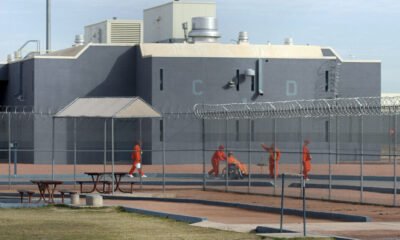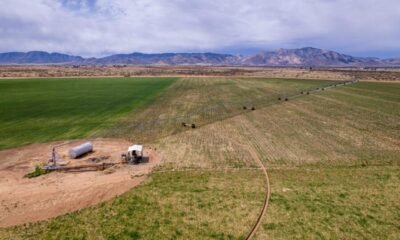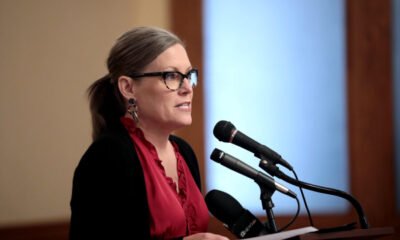abortion
Hobbs Demands Abortion Questionnaire Overhaul, Calls for New Legislation

In a bold move against what she labels “government surveillance,” Governor Katie Hobbs has urged lawmakers to repeal several state laws mandating abortion providers to report comprehensive details about patients and procedures to the state.
This initiative follows the release of the Arizona Department of Health Services’ annual report, which detailed statistics on abortions, including the procedure type, gestational age, demographic information about women, and their reasons for seeking an abortion.
Although healthcare providers maintain patient confidentiality by not sharing identities, Gov. Hobbs argues that collecting such data is invasive and unwarranted. “This report is an attack on our freedom and must be brought to an end,” she asserted, emphasizing that the government should not interfere in personal medical decisions.
However, Hobbs faces a significant challenge. The state laws requiring these reports are entrenched in legislation that requires approval from the Republican-controlled Legislature, where opposition from anti-abortion advocates is anticipated. Cathi Herrod, president of the Center for Arizona Policy, argued that monitoring abortion data aligns with public health responsibilities.
“If abortion is health care, it’s reasonable to track its provision,” Herrod contended, noting that women retain the right to decline to answer questions posed during the reporting process. Furthermore, she pointed out the potential benefits of the questions in cases of coercion or abuse.
Hobbs insists that such inquiries should not occur. “Starting a family is sensitive, and government intrusion is unacceptable,” she stated. The collected statistics reveal not only the number but also context behind each abortion, presenting a duality inherent to the debate.
The latest report indicated that 12,705 abortions took place in Arizona in 2023, marking the lowest figure since the current reporting standards were implemented in 2011. Comparatively, 77,881 live births occurred statewide, further emphasizing the complexity of reproductive decisions.
Post-Roe v. Wade, legislative changes have significantly impacted abortion availability, limiting procedures to the first 15 weeks of pregnancy. The stark contrast in numbers illustrates a shift in accessibility—21 abortions were performed after 15 weeks in 2023, compared to 824 in 2021.
While most women categorize their reasons for abortion as elective, others cite financial challenges or experiences of domestic violence, among various other factors. Notably, one-third opted not to disclose their reasons.
Critics fear that the existing collection methods create a de facto registry that could breach individual privacy rights. Hobbs labeled this data gathering as a gross infringement upon personal liberties, despite assurances that individual identities remain protected in the reports.
Legislation aimed at repealing the reporting requirements will be championed by Rep. Stephanie Stahl Hamilton, who previously facilitated the repeal of an archaic abortion ban. Support for Hobbs’ initiative extends to medical professionals like Dr. Jill Gibson of Planned Parenthood Arizona, who advocates for patient confidentiality and criticizes the current reporting burden on healthcare providers.
As discussions unfold, the alignment of legislative support remains uncertain, reflecting the ongoing complexities of reproductive rights in Arizona.


















